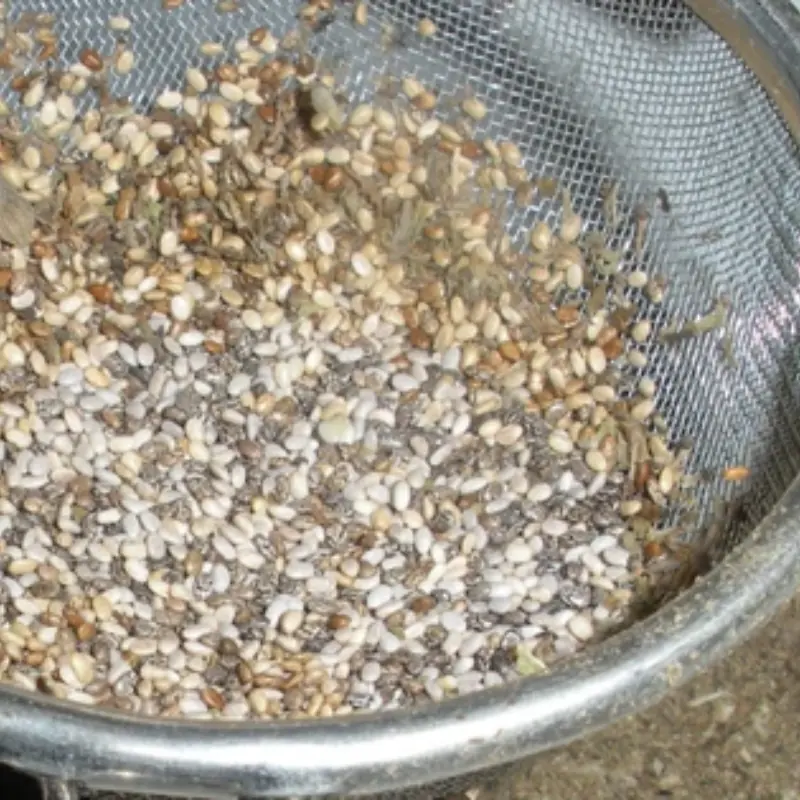
5 Habits Doctors Never Do During Flu Season: How They Stay Healthy Despite Daily Contact with Thousands of Patients
5 Habits Doctors Never Do During Flu Season: How They Stay Healthy Despite Daily Contact with Thousands of Patients
Flu season is rampant, and do you know what measures doctors take to protect their own health? In northern regions, this flu season is particularly complex, leading to many hospitalizations and compromised lung function. As the weather gets colder and people spend more time indoors, respiratory illnesses tend to spread rapidly in confined spaces.

According to the Centers for Disease Control and Prevention (CDC), flu cases begin to rise in October and typically peak from December to February. Besides the flu, other respiratory viruses such as the rhinovirus and RSV—which cause cold-like symptoms—are also circulating. And COVID-19 remains a persistent threat.
Doctors aren’t immune to the risks during this time of year, but they know exactly how to protect themselves. Here are the practices that experts never compromise on to maintain their health:
-
Never Skip or Delay the Flu Vaccine
Professor Marie-Louise Landry from Yale School of Medicine explains that skipping or postponing the flu shot can put you at risk of severe complications related to the flu. She shares, "I used to suffer from severe flu episodes multiple times. Since I started getting vaccinated annually, I've only had a mild flu once, and it was much shorter in duration."
Everyone from six months of age onward is recommended to receive the flu vaccine each season—with few rare exceptions. Get vaccinated as soon as it’s available in your community to allow your body time to build up antibodies against the virus. -
Avoid Going to Work When Sick
Professor Richard A. Martinello, an infectious disease and pediatrics specialist at Yale School of Medicine, emphasizes, "I always avoid going to work if I have the flu or a cold. We have a responsibility to protect one another; working while sick puts those around us at risk of infection." -
Wear a Mask in Public Places
Using a mask when in public drastically reduces the risk of spreading respiratory droplets into the air when you cough or sneeze. -
Wash Your Hands Frequently
Poor hand hygiene is a major risk factor for contracting the flu or a common cold. Experts recommend keeping your hands clean by washing them regularly.
Professor Martinello explains, "When our hands pick up viruses from contaminated surfaces, touching our eyes or nose can easily lead to illness."
If soap and water are not available, an alcohol-based hand sanitizer can serve as a temporary substitute. -
Avoid Overloading Your Schedule
It’s crucial to rest adequately when you’re sick. Often, we try to power through our busy routines regardless of how we feel, ignoring our body’s signals to rest. Sufficient sleep is key to a faster recovery from a cold or the flu—illness symptoms can last up to two weeks, and lack of sleep is linked to increased inflammation and a weakened immune response, potentially prolonging recovery.
By prioritizing these healthy habits, you’re giving yourself the best chance to avoid illness during the most challenging season of the year.
News in the same category


Buy it immediately

Sweet potatoes are great for your health, but there are some special precautions to keep in mind when eating them.

8 Underlying Causes of nip.ple Pain and How to Treat It

9 symptoms of nasopharyngeal can:cer are similar to the flu

The Miracle Cure for BLOOD PRESSURE

Carrots are known for their high content of vitamin A

The REAL Reason to Drink Lemon Water Every Day

Health benefits of cloves

25 Self-Care Sunday Ideas to Try Out

4 "Risky" Morning Habits That Damage Your Li.ver—90% of People Do Them Every Day!

4 "l.i.ver-de.str.oying" habits after waking up in the morning, 90% of people make them every day!

5 foods are considered "vacuum cleaners" for the l.u.n.gs: eat them regularly and your l.u.ngs will be cleaned

Signs of High Blo.od Sugar and Diabetes Risk: If You Have Any of These 6 Symptoms, Be Cautious!

7 warning signs of incurable diseases on the feet: Those who do not have them are very congratulatory

Using your phone a lot is fine, but you have to avoid 2 times

9 Warning Signs of Can.cer: Recognize Them Early to Save Your Life

At 25, She Had to Undergo a Hysterectomy to Survive: A Girl Breaks Down in Tears, Urging Everyone Not to Ignore Four Small Changes

Want Firm, Wrinkle-Free Skin? Discover 9 Collagen-Boosting Superfoods That Keep You Surprisingly Youthful!
News Post

The surprising benefits of eating boiled sweet potatoes for breakfast

TIPS to stimulate hair growth with rice water effectively after only 1 month

What to do if bit.te.n by a dog? 6 safe ways to handle and give first aid

Plants that should not be planted around the house because they attract snakes

A Tiny Seed with Mighty Benefits

Don't put ginger, garlic, and chili in the refrigerator: Store them this way to keep them

The non-stick coating of the rice cooker has peeled off after long use. Is it harmful to use it?

Buy it immediately

The First Image You See Will Reveal Your Personality!

How to Improve Your Mental and Emotional Health

"Why I Only Charge My iPhone to 80% Instead of Fully Charging" – Everyone's Got It Wrong; Fully Charging Isn’t Always Best

Sweet potatoes are great for your health, but there are some special precautions to keep in mind when eating them.

8 Underlying Causes of nip.ple Pain and How to Treat It

9 symptoms of nasopharyngeal can:cer are similar to the flu

How to Make Women Melt

The insect, the size of a grain of rice, is 12 to 15 times more toxic than cobra venom

Nurse kneels, holding newborn baby tight amid earthquake

The Miracle Cure for BLOOD PRESSURE

Carrots are known for their high content of vitamin A
